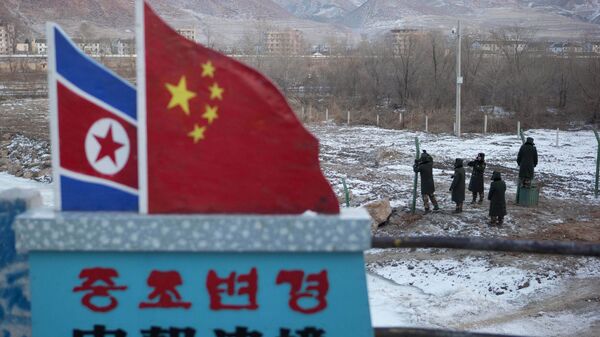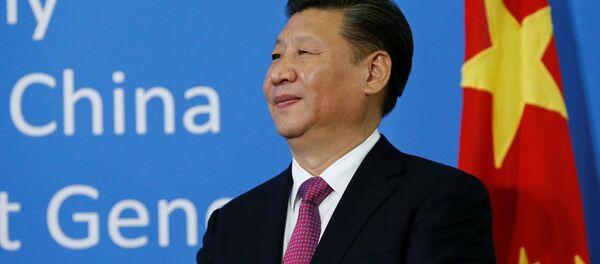Negotiations between Ri Kil Song, Chinese Foreign Minister Wang Yi, Deputy Foreign Minister Liu Zhenmin and other Chinese officials began on Tuesday, with the two sides expected to exchange views on regional and global issues of mutual interest. Ri's visit is expected to last until March 4.
Speaking to Sputnik about the implications of the visit, Alexander Vorontsov, a North Korea expert at the Russian Institute of Oriental Studies, said that the visit was likely planned ahead of time, but that a number of new stimuli have appeared giving this week's meetings a special importance.
"A great number of acute problems has been accumulated," the expert said. "This includes the issue of China joining the anti-North Korean sanctions," specifically via its "recent decision to stop the purchase of North Korean coal, which has been extremely painful by Pyongyang."
The Korean Central News Agency (KCNA), North Korea's official state news agency, responded to the freeze by calling Beijing's decision "inhumane," and its actions those of a "neighboring country which once called itself friendly."
Da Zhigang, director of the Northeast Asia Research Institute at Heilongjiang Provincial Academy of Social Sciences, told Sputnik that the critique by the KCNA has had the effect of 'freezing rain' for Sino-North Korean relations.
"People informed about the situation understand that the criticism by the KCNA was directed against China," the expert said. "This is an unprecedented rebuke by Pyongyang since the beginning of the nuclear problem" over a decade ago, he noted.
The harsh rhetoric, according to Da Zhigang, was caused by China's factual adherence to UN Security Council Resolution 2321, "which was supplemented by unilateral sanctions imposed in the form of the suspension of North Korean coal imports. Pyongyang's budget is modest to begin with, and now, thanks to the termination of foreign exchange earnings amounting to about $780 million, it will face an acute deficit; this is something that hit a raw nerve with the DPRK."
Finally, Vladimir Yevseyev, military affairs commentator and deputy director of the Commonwealth of Independent States Institute, told Sputnik that China's adherence to international sanctions against Pyongyang is sure to be the big topic of discussion during this week's negotiations between North Korean and Chinese officials.
"If China wants, it can make it so that sanctions imposed against North Korea will be effective," Yevseyev said. "Beijing has a certain level of desire to implement the sanctions, and that is important. North Korea, of course, would like to see Beijing sabotage these sanctions. But China has its own problems in relations with the West, specifically with the coming to power of the new administration in the US. This, of course, is also a factor. Pyongyang would like to see China buying its coal; they would like to see North Koreans continue to work in China, to operate North Korean restaurants and other companies; they need some source of foreign currency."
In addition to the negotiations with North Korea, Beijing is also attempting to prevent the escalation of the tensions in the region via negotiations with other interested parties. On Tuesday, Assistant to Foreign Minister Kong Xuan met with Russian Deputy Foreign Minister Igor Morgulov in Beijing to discuss the North Korea problem within the framework of bilateral consultations on security in Northeast Asia.





